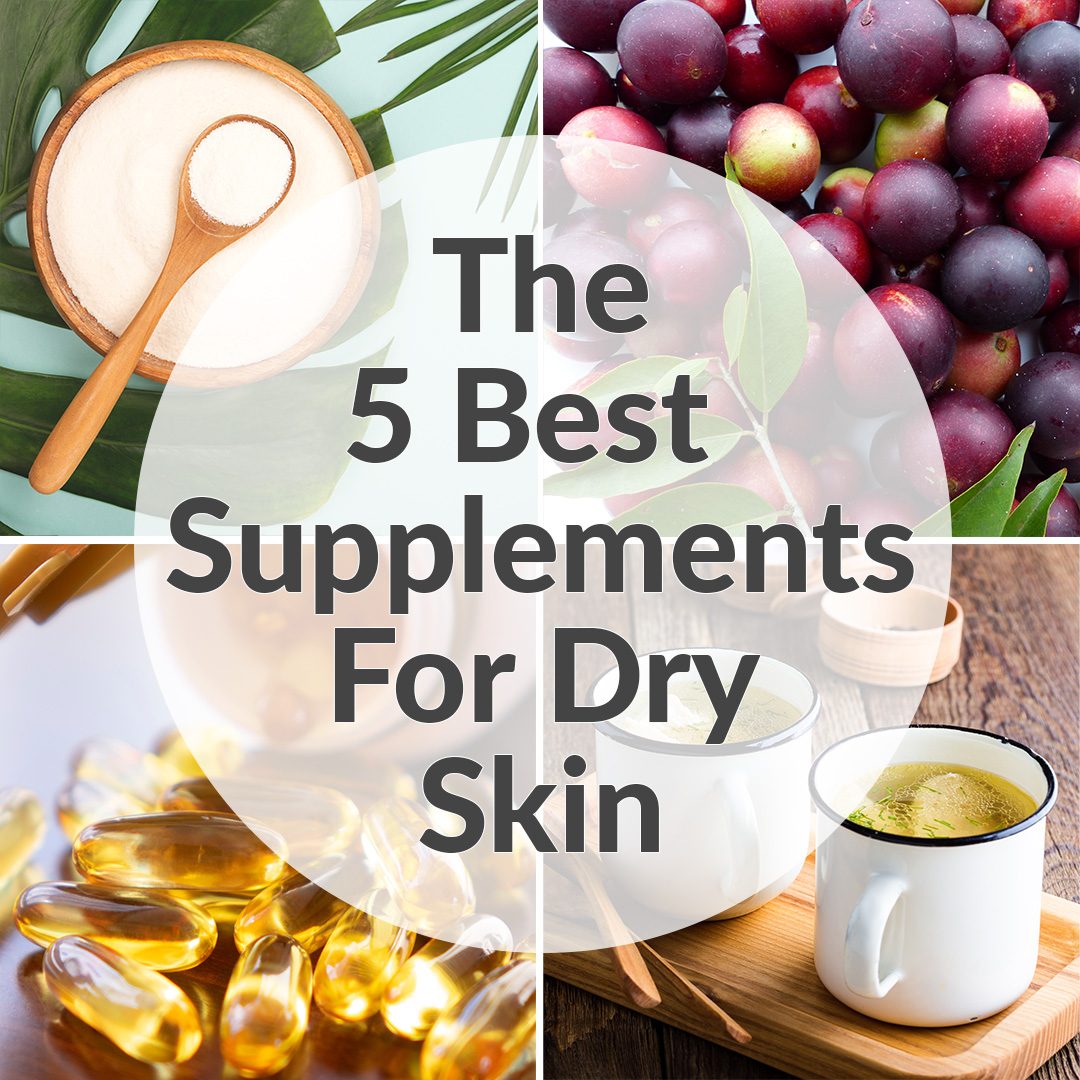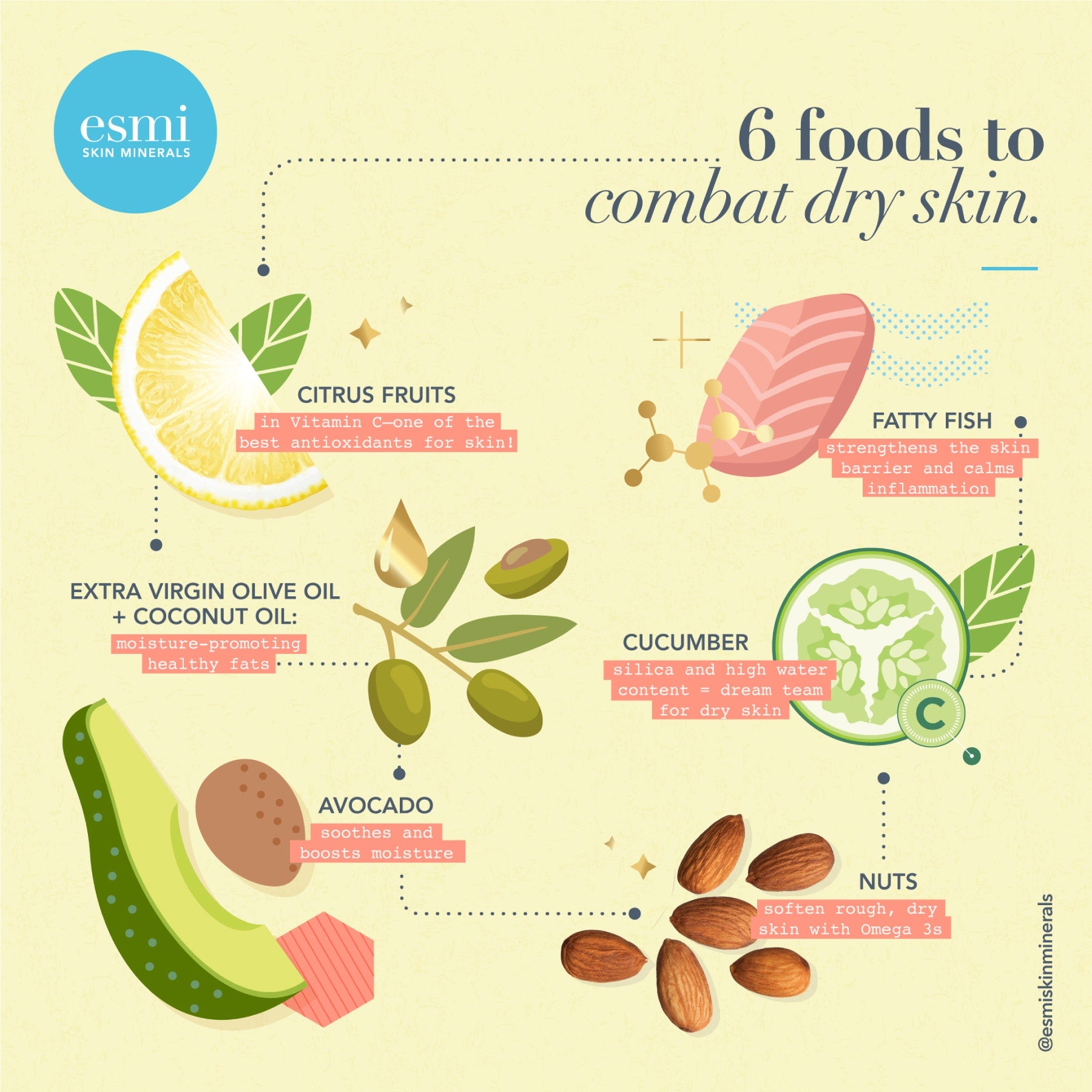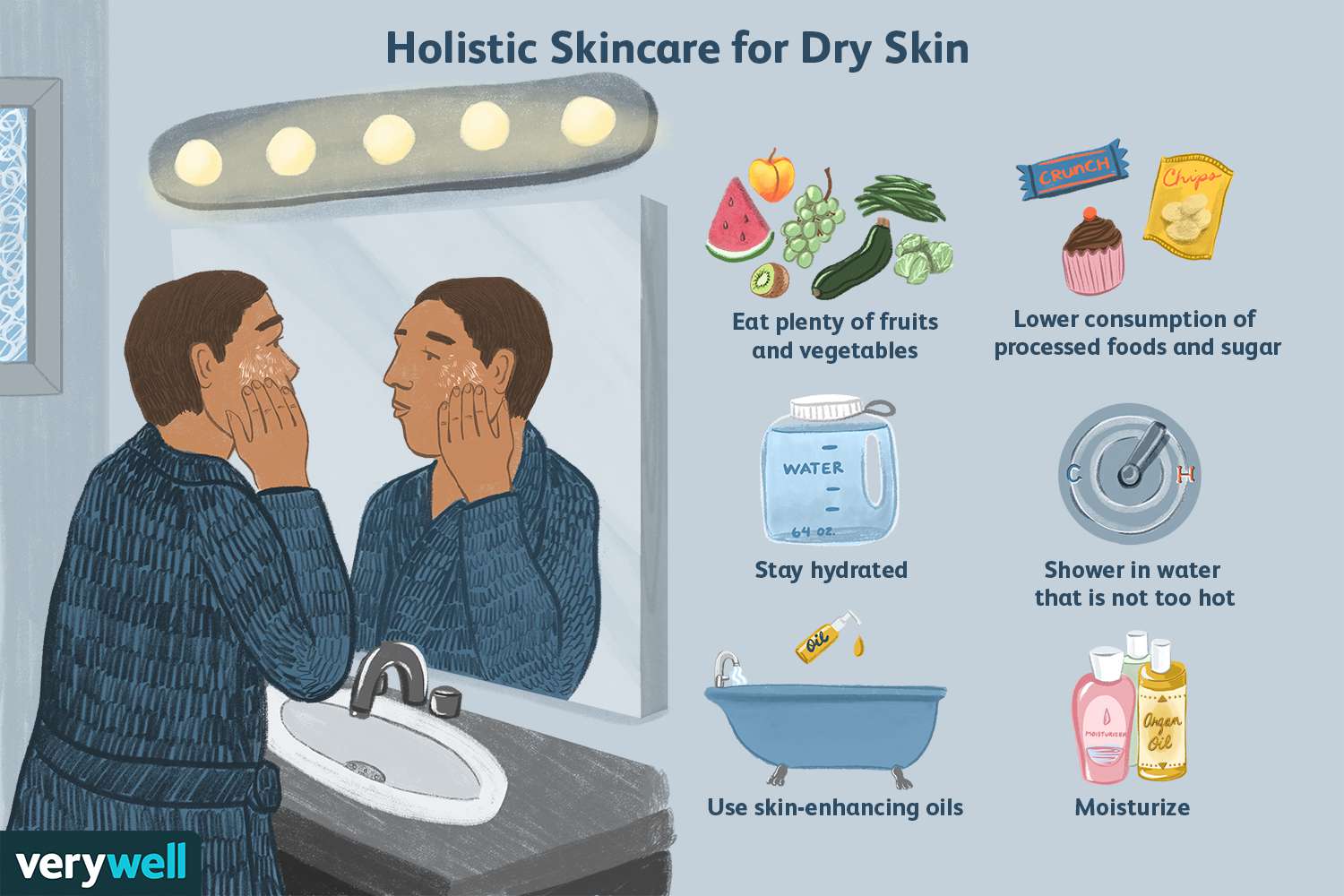Vitamin E is good for dry skin. It helps moisturize and protect the skin from damage.
Dry skin can be uncomfortable and unattractive, often leading to itching and flakiness. Vitamin E, a powerful antioxidant, plays a crucial role in maintaining skin health. It helps retain moisture, reducing dryness and irritation. Found in various foods like nuts, seeds, and leafy greens, Vitamin E is also available in topical creams and oils.
Regularly incorporating Vitamin E into your diet and skincare routine can significantly improve skin hydration. For those struggling with persistent dry skin, Vitamin E can be an effective and natural solution to achieve smoother, healthier skin. Always consult with a healthcare provider before starting any new supplement.
:max_bytes(150000):strip_icc()/best-vitamins-and-supplements-for-skin-health-tout-0fc0a9fb953e45118e7c0fce71815715.jpg)
Credit: www.verywellhealth.com
Introduction To Dry Skin
Dry skin can be very uncomfortable. It often feels tight and rough. Sometimes, it might even crack or bleed. Many factors can make skin dry. These include weather, age, and skin conditions. Finding the right vitamin can help improve dry skin.
Causes Of Dry Skin
Several things can cause dry skin. Cold weather is a common cause. Low humidity levels also make skin dry. Washing with harsh soaps can strip oils from the skin. Long, hot showers can worsen dryness. Certain medical conditions can lead to dry skin. These include eczema and psoriasis.
Symptoms Of Dry Skin
Dry skin often feels tight, especially after washing. It may look rough and flaky. Sometimes, the skin may crack or peel. It can also feel itchy and irritated. Redness is another common symptom. Severe dryness might cause deep cracks that bleed.

Credit: ecologyskincare.com
Role Of Vitamins In Skin Health
Vitamins play an important role in keeping skin healthy. They help to repair and rejuvenate skin cells. A balanced diet with essential vitamins can improve skin texture. Vitamins can also protect skin from damage. These nutrients are vital for maintaining skin hydration. Lack of vitamins can lead to dry and flaky skin.
Vitamin E is known for its moisturizing properties. It helps to heal dry skin and reduce flakiness. Vitamin C promotes collagen production. This keeps the skin firm and smooth. Vitamin A helps in repairing damaged skin tissue. It also helps in reducing wrinkles and fine lines. B Vitamins, especially B3, help to retain skin moisture. They also improve the skin barrier function.
Vitamin A For Dry Skin
Vitamin A helps skin repair and grow. It keeps skin moist and smooth. It can reduce wrinkles and fine lines. This vitamin also fights acne and pimples. It protects skin from sun damage. Vitamin A strengthens the skin barrier. This makes the skin less dry and flaky.
Foods rich in Vitamin A are carrots, sweet potatoes, and spinach. Eggs and dairy products are also good sources. Liver and fish oils have high amounts of Vitamin A. It can also be taken as a supplement.
Vitamin C And Skin Hydration
Vitamin C helps keep your skin soft and hydrated. It boosts collagen production. Collagen makes your skin firm and smooth. It also reduces redness and inflammation. This vitamin helps protect your skin from sun damage.
Vitamin C lightens dark spots. It helps heal wounds faster. This vitamin can also make your skin look younger and fresher.
Many fruits and vegetables are rich in Vitamin C. Oranges and strawberries are good sources. Kiwi and guava are also very high in this vitamin. Vegetables like bell peppers and broccoli are great choices too.
Eating these foods can help keep your skin healthy. You can also take Vitamin C supplements. Always check with a doctor before starting any new supplement.
Vitamin E For Moisturized Skin
Vitamin E helps to keep your skin moisturized. It protects your skin from damage. This vitamin can make your skin soft and smooth. It also helps to reduce dryness. Vitamin E can improve your skin’s appearance. It can also help to heal cracked skin. Many people use Vitamin E for its anti-aging benefits.
You can find Vitamin E in many foods. Nuts and seeds are good sources. Almonds, sunflower seeds, and hazelnuts are rich in Vitamin E. Green leafy vegetables like spinach and broccoli also have Vitamin E. You can get it from vegetable oils like sunflower oil and safflower oil. Some fruits such as avocados and kiwi also contain Vitamin E. Including these foods in your diet can help improve your skin.
Vitamin D And Skin Health
Vitamin D helps in repairing and growing skin cells. It reduces inflammation and makes the skin softer. This vitamin protects the skin from damage. It also helps skin retain moisture.
There are many sources of Vitamin D. Sunlight is the best source. Foods like fish, eggs, and mushrooms are rich in this vitamin. Milk and orange juice often have added Vitamin D. Supplements can also provide this vitamin.
Other Essential Nutrients For Dry Skin
Vitamin E helps combat dry skin by retaining moisture and protecting from environmental damage. Omega-3 fatty acids also promote skin hydration and elasticity.
Omega-3 Fatty Acids
Omega-3 fatty acids are vital for skin health. They help to maintain the skin’s lipid barrier. A strong barrier helps to retain moisture. Fish like salmon and mackerel are rich in omega-3s. Flaxseeds and walnuts are good plant-based sources. Including these foods in your diet can improve skin hydration. Supplements are also available for those who don’t consume enough through diet.
Zinc And Selenium
Zinc and selenium play crucial roles in skin repair. Zinc helps to reduce inflammation and protects the skin. It can be found in foods like oysters, beef, and pumpkin seeds. Selenium acts as an antioxidant, protecting the skin from damage. Brazil nuts are an excellent source of selenium. These nutrients support overall skin health and prevent dryness.

Credit: www.esmiskin.com
Tips For Maintaining Healthy Skin
Wash your face twice daily with a gentle cleanser. Use a moisturizer that suits your skin type. Apply sunscreen every day, even if it’s cloudy. Drink plenty of water to stay hydrated. Avoid using hot water while washing your face. Exfoliate your skin once a week to remove dead skin cells. Choose skincare products that contain natural ingredients.
Eat foods rich in vitamins and minerals. Vitamin E is excellent for skin health. Consume nuts, seeds, and green leafy vegetables. Omega-3 fatty acids also help maintain skin moisture. Fish, flaxseeds, and chia seeds are good sources. Avoid smoking and limit alcohol intake. Get enough sleep every night. Exercise regularly to improve blood circulation.
Frequently Asked Questions
What Vitamins Are Good For Dry Skin?
Vitamin E, Vitamin C, and Vitamin D are good for dry skin. They help retain moisture, repair skin damage, and improve skin texture.
Can Vitamin E Help With Dry Skin?
Yes, Vitamin E is beneficial for dry skin. It has antioxidant properties that help maintain skin’s moisture and prevent dryness.
How Does Vitamin C Benefit Dry Skin?
Vitamin C helps improve dry skin by boosting collagen production. It enhances skin elasticity and moisture retention, making skin smoother.
Is Vitamin D Effective For Dry Skin?
Vitamin D is effective for dry skin. It promotes skin cell growth and repair, improving hydration and reducing dryness.
Conclusion
Finding the right vitamin for dry skin can significantly improve your skin’s health. Vitamins A, C, and E are essential. They provide hydration and promote healing. Including these vitamins in your diet or skincare routine can make a noticeable difference.
Take steps today for softer, healthier skin.








